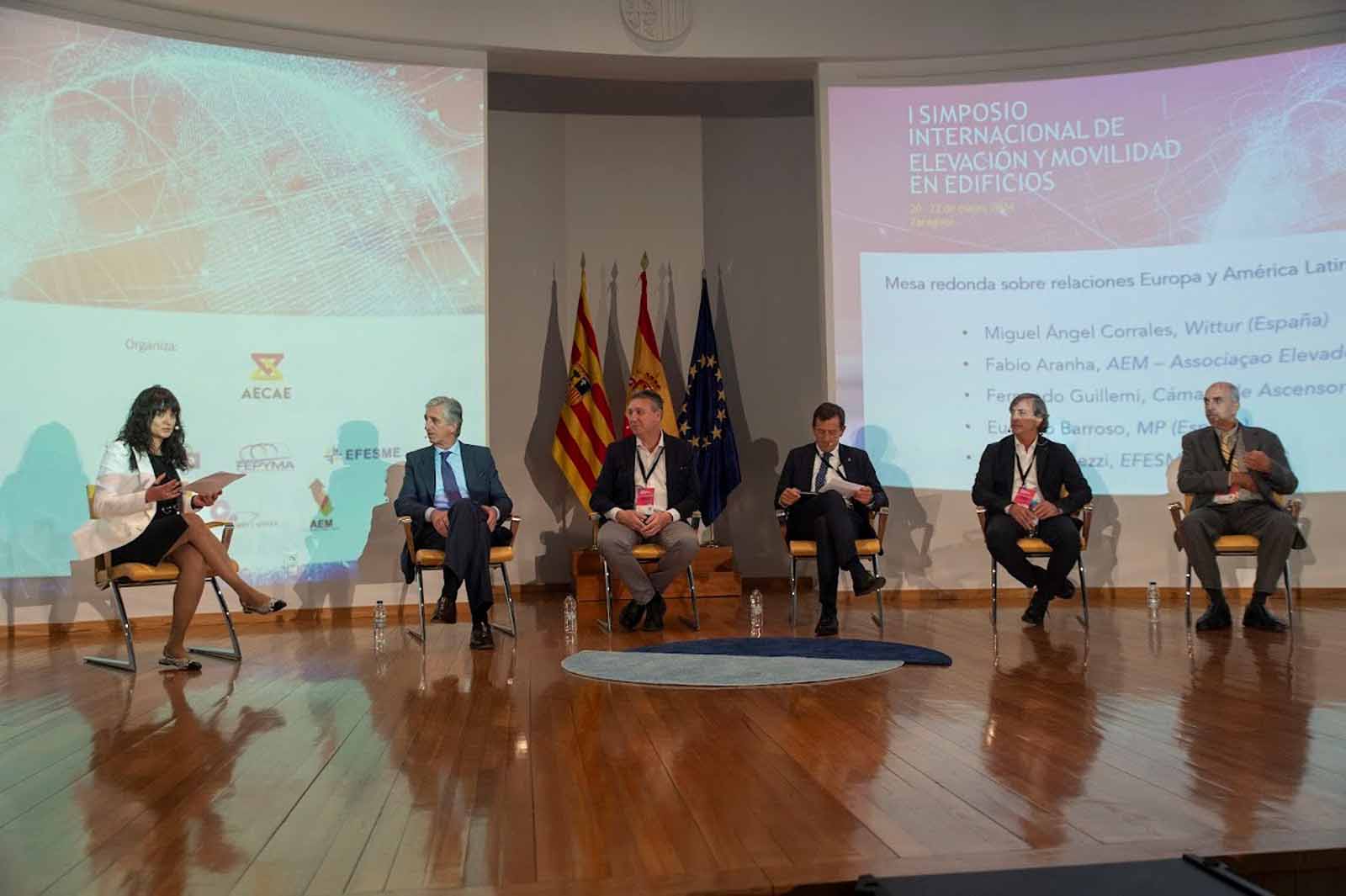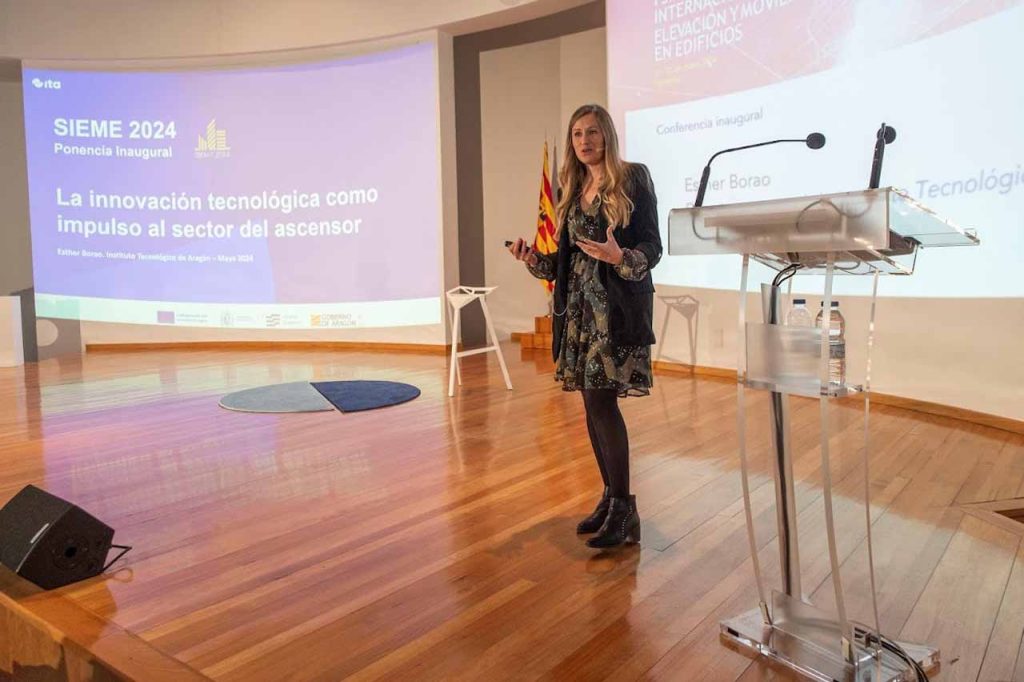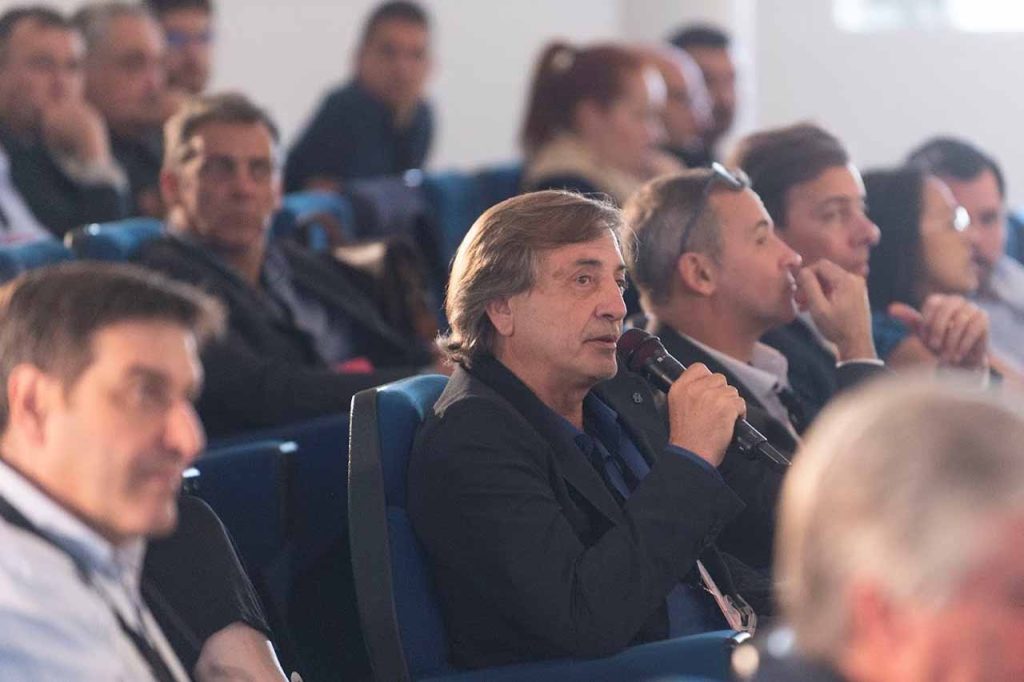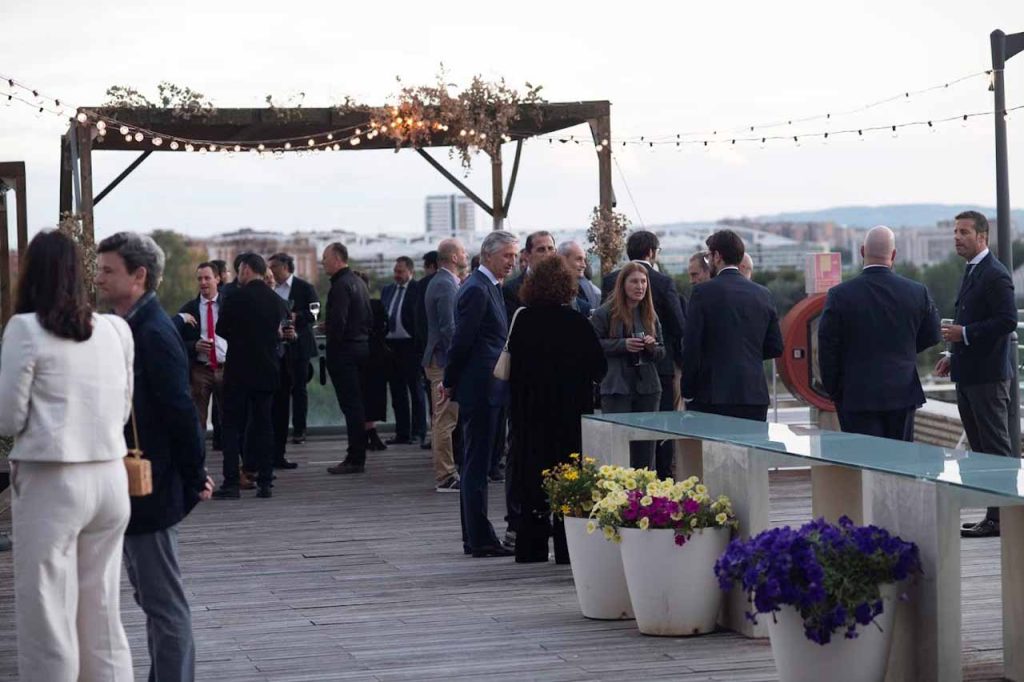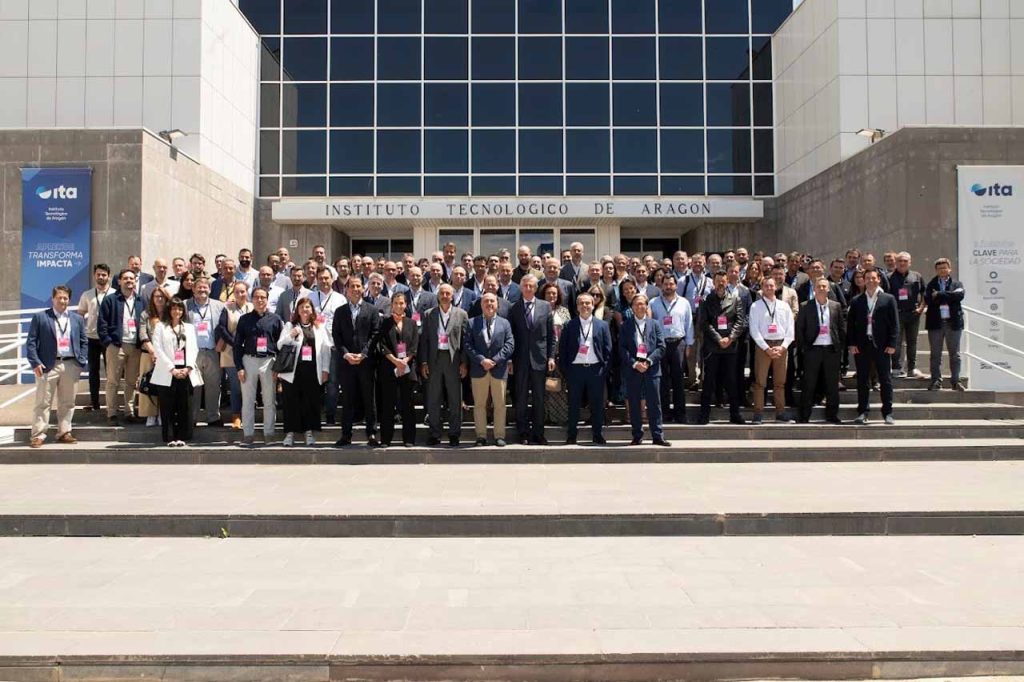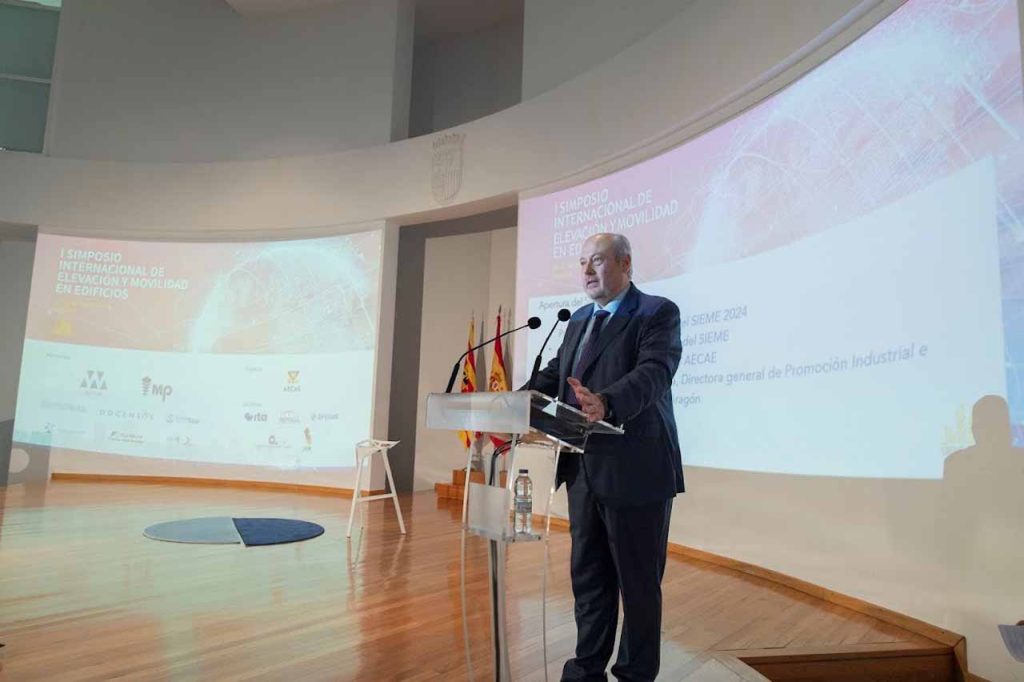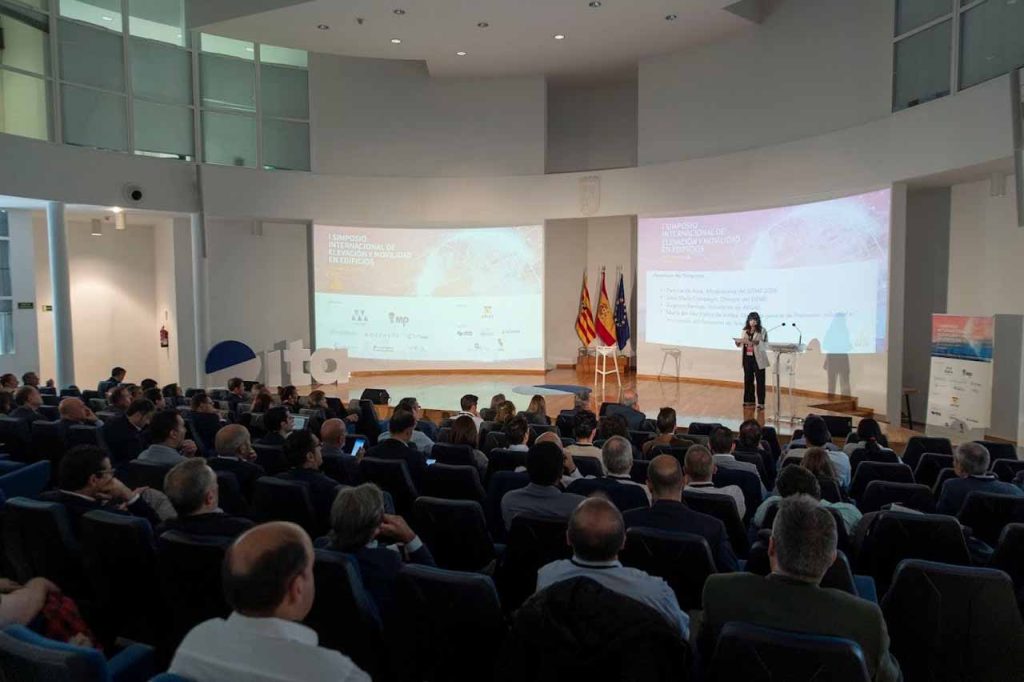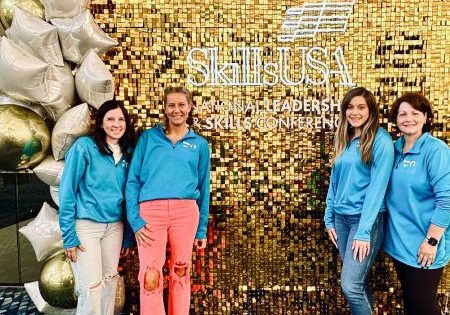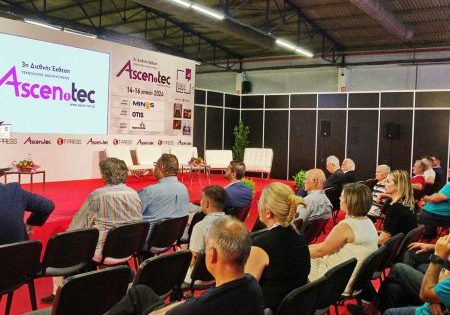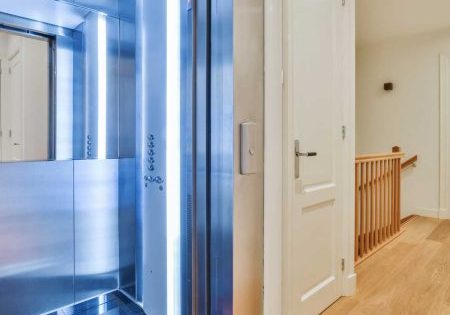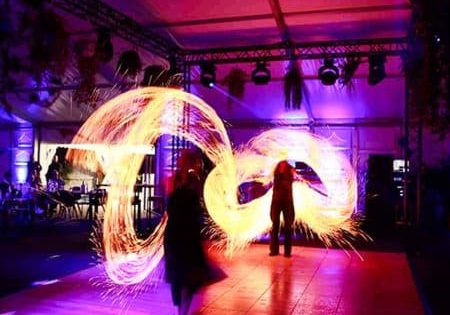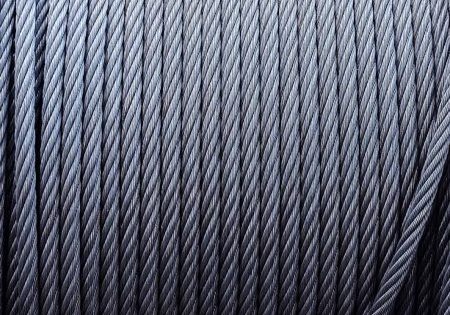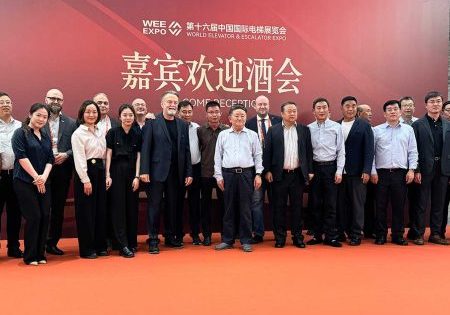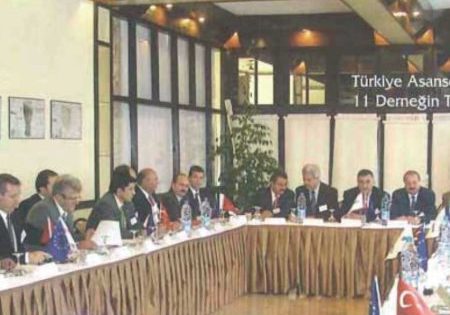Inaugural Spanish-speaking event
by Alea Guillemi
On May 20-22, the first Spanish-speaking symposium worldwide, the SIEME (International Symposium on Elevation and Mobility in Buildings), was held. It brought together more than 120 professionals from the sector at the ITA (Technological Institute of Aragon). The event was inaugurated by organizers José María Compagni, director of SIEME; Eugenio Barroso, president of AECAE (Association of Lift Component Manufacturers); Patricia de Anta, moderator of SIEME; and Maria del Mar Paños de Arriba, general director of Industrial Promotion and Innovation of the Government of Aragon.
Esther Borao, general director of ITA, gave an inaugural address emphasizing the importance of digitalization, sustainability and innovation to face future challenges.
The event focused on four themes: elevator components and lifting solutions, digitalization, energy and circular economy and industry. There were 16 presentations, two roundtables, a welcome cocktail part, a gala dinner and two factory visits — Wittur Zaragoza and MP Systems.
Representation of Latin America
Latin America was represented by Argentina (Fernando Guillemi, Fernando Lueje and Alea Guillemi), Brazil (Fabio Aranha) and Colombia (Laura Sanchez). Although a representative from Paraguay had to cancel, Marcelo Zicarrelli from Argentina attended as a representative of Liftinstituut.
Guillemi and your author discussed the environmental impact of elevators and the need for more sustainable solutions, emphasizing the larger carbon footprint of after-sales services compared to the elevators themselves. They proposed remote maintenance and efficient human resource management to reduce environmental impact, focusing on a circular economy, AI and robotization for more sustainable elevators.
Lueje, general manager of Wittur Group Argentina, presented a new solution prioritizing safety, sustainability and efficiency, tailored for a region with limited resources. Wittur implements automated manufacturing and Lean manufacturing production systems, integrating digitalization and sensor technologies for preventive and predictive maintenance. It is committed to using traction tape for its cost-effectiveness and energy efficiency.
At the end of the symposium, a panel of experts, including Guillemi and Aranha, discussed perspectives on each country’s elevator industry. Adolfo Arévalos Maciel from Paraguay was also supposed to participate to highlight the need for modern elevator standards in Paraguay.
AGENDA
Monday, May 20
• Visit to Wittur factory, platinum sponsor of the event, guided by José Antonio Ostariz, plant director, showcasing processes and robotization projects.
• Welcome cocktail party by Wittur on a rooftop in Zaragoza, with speeches by Barroso and Ostariz emphasizing the alliance between Europe and Latin America and the importance of innovation and automation.
Tuesday, May 21
• Presentations covering various topics such as frequency converters, Quick Response Quality Control (QRQC), technical e-learning, laser metrology, mobility solutions, small and medium-sized enterprise value contribution, motor control and sustainable vertical mobility.
• Roundtable on equality and diversity in the elevator sector, highlighting the importance of inclusivity and a strategic plan to improve gender equality and diversity in companies.
• Gala dinner at Acuario Restaurant, recognizing the ITA and Antonio García of Alvear for their contributions to the sector.
Roundtable Equality and Diversity in the Elevator Sector
The roundtable discussion, which focused on equality and deversity in the elevator sector, was an excellent opportunity to exchange opinions. Pilar Molina, CEO of Epic Power, presented a McKinsey report showing data on this topic, including company equality policies in recent years: The report revealed that more than 50% of companies lack an equality plan.
The presentation began with a striking sentence: “A company tends to mediocrity when it isolates itself from the society in which it lives. When you don’t understand that being inclusive today is more strategic than ever,” Avoiding Mediocrity by Xavier Marcet.
Based on this presentation, AECAE proposed a four-year strategic plan starting in 2021 to improve gender equality and diversity in companies. In order to achieve this objective, a diagnosis of the current situation had to be made to assess the results of action plans, identify good practices in the sector and promote constructive changes to achieve equality. Opportunities for company-sponsored programs to help associates were discussed.
Some of the conclusions were to begin to “feminize” the sector, take formal measures to incorporate equality plans and salary registration and encourage external hiring to maximize diversity. Anyone interested in reading the report can request it from [email protected].
Wednesday, May 22
• Presentations on control panels, Lean engineering, circular economy principles, elevator electricity consumption myths, functional validation of components and automation complexities.
• Rounddtable on Europe-Latin America relations, discussing the need for regulatory collaboration and unification to strengthen the elevator industry. Key points included increasing productivity, technology for innovation and the importance of the World Elevator & Escalator Federation (WEEF) in unifying concepts and regulations.
Roundtable Relations Europe and Latin America: Needs and Expectations
The representatives of this roundtable were Barroso (Spain); Miguel Angel Corrales, commercial director of Wittur (Spain); Massimo Bezzi, chairman of ICM Lift Componentes and president of EFESME (Italy); Guillemi, CEO of Guillemi Group and president of CAA (Argentina); and Aranha, owner of Infolev Elevadores & Informatica and president of AEM (Brazil).
A common axis throughout the roundtable discussion was the regulations and the need to collaborate between the different regions to strengthen and homogenize the regulations so that they can have the same guidelines. Barroso, in turn, placed great importance on increasing productivity and stressed the importance of technology for innovation and process automation.
Bezzi took the opportunity to promote and begin to raise awareness among all in the field about the important task of WEEF, which was started a couple of years ago to unite the efforts of several entities to unify concepts and regulations.
Guillemi, in line with these concepts, requested the acceleration of the implementation of ISO 8100 that allows, for example, the standardization of suspension elements. The reciprocity of testing laboratories between European and Latin countries was discussed. America was presented as another possible great step.
He also raised conceptual themes on three transcendental topics that define current elevators design. One of them already promises to bring about a drastic change regarding machine rooms. He also spoke about the evolution of the values of new equipment and conservation in the region, added to the industrial policies and regulations of the country.
Corrales related the situation that certification of security components is experiencing today and how that impedes the commercial link with Latin America, especially with Argentina. Finally, Aranha, who also belongs to WEEF as president of AEM (Mercosur Elevators Association), supported Bezzi’s concept and agreed with the rest of the experts on the unifying criteria and having collaborative meetings with the different chambers to express experiences and reach solutions together. He also highlighted the country’s potential as an emerging market, focusing on statistical data and the concentration of foreign companies in the Brazilian market and the challenges they face, such as implementation of the standard equivalent to EN 81-20/50. Urban growth and the demand for accessibility due to an aging population were highlighted, as well as specific difficulties for SMEs, such as high certification costs and competition with large manufacturers. Despite these challenges, the need for global collaboration was highlighted to address safety, accessibility and energy efficiency issues in the elevator industry in Brazil.
Visit to MP Systems
There was also a visit to the MP Systems factory, where participants observed the production process and witnessed a key cabin model change to streamline production, deliveries and installation.
The presentations and full schedule is available for download from SIEME website. The next SIEME is planned for November 2026 in Buenos Aires.
Get more of Elevator World. Sign up for our free e-newsletter.
